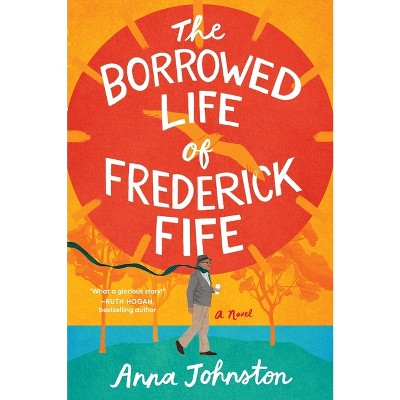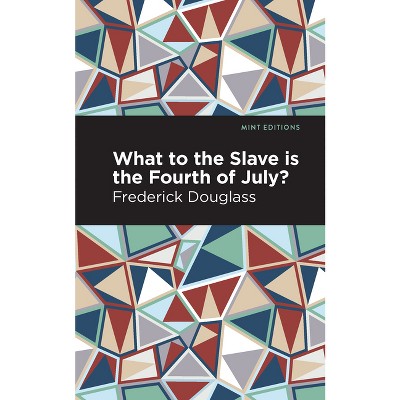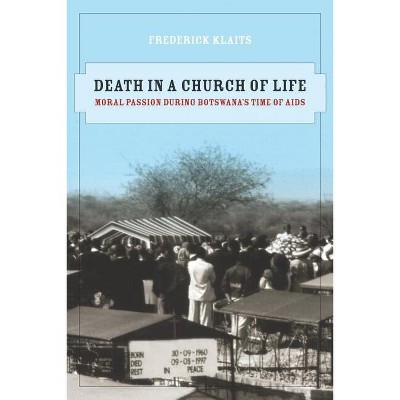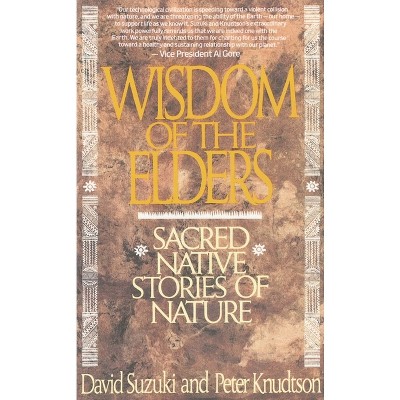Sponsored

Black Elders - (Early American Studies) by Frederick Knight (Hardcover)
$28.50Save $11.45 (29% off)
In Stock
Eligible for registries and wish lists
Sponsored
About this item
Highlights
- Would there have been a Frederick Douglass if it were not for Betsy Bailey, the grandmother who raised him?
- About the Author: Frederick C. Knight is Professor of History at Morehouse College and author of Working the Diaspora: The Impact of African Labor on the Anglo-American World, 1650-1850.
- 248 Pages
- History, African American
- Series Name: Early American Studies
Description
About the Book
"In Black Elders, Frederick C. Knight explores the experiences of African Americans with aging and in old age during the eras of slavery and emancipation. Though slavery put a premium on young labor, elders worked as caregivers, domestics, cooks, or midwives and performed other tasks in the margins of Southern and Northern economies. Looking at black families, churches, mutual aid societies, and homes for the aged, Knight demonstrates the pivotal role of elders in the history of African American community formation through Reconstruction. Drawing on a wide array of printed and archival sources, including slave narratives, plantation records, letters, diaries, meeting minutes, and state and federal archives, Knight also examines how blacks and whites, men and women, and the young and the old developed competing ideas about age and aging, differences that shaped social relations in coastal West and West Central Africa, the Atlantic and domestic slave trades, colonial and antebellum Southern slave societies, and emancipation in the North and South. Black Elders offers a unique window into the individual and collective lives of African Americans, the day-to-day struggles they waged around their experiences of aging, and how they drew upon these resources to define the meaning of family, community, and freedom"--Book Synopsis
Would there have been a Frederick Douglass if it were not for Betsy Bailey, the grandmother who raised him? Would Harriet Jacobs have written her renowned autobiography, Incidents in the Life of a Slave Girl, if her grandmother, a free black woman named Molly Horniblow, had not enabled Jacobs' escape from slavery?
In Black Elders, Frederick C. Knight explores the experiences of African Americans with aging and in old age during the eras of slavery and emancipation. Though slavery put a premium on young labor, elders worked as caregivers, domestics, cooks, or midwives and performed other tasks in the margins of Southern and Northern economies. Looking at black families, churches, mutual aid societies, and homes for the aged, Knight demonstrates the pivotal role of elders in the history of African American community formation through Reconstruction. Drawing on a wide array of printed and archival sources, including slave narratives, plantation records, letters, diaries, meeting minutes, and state and federal archives, Knight also examines how blacks and whites, men and women, the young and the old developed competing ideas about age and aging, differences that shaped social relations in coastal West and West Central Africa, the Atlantic and domestic slave trades, colonial and antebellum Southern slave societies, and emancipation in the North and South. Black Elders offers a unique window into the individual and collective lives of African Americans, the day-to-day struggles they waged around their experiences of aging, and how they drew upon these resources to define the meaning of family, community, and freedom.Review Quotes
"By centering the politics of age and eldership from the height of the Atlantic slave trade through the Civil War, Black Elders offers a new and important contribution to the study of Black life in slavery and freedom."-- "Erica Armstrong Dunbar, author of Never Caught: The Washingtons' Relentless Pursuit of Their Runaway Slave, Ona Judge"
"Spanning continents and centuries, Black Elders is the first comprehensive history of Black elderhood as lived experience and cultural ideal. Frederick C. Knight offers a transformative history of slavery and freedom that recognizes the importance of Black elders as leaders who held together multigenerational families, spurred community development, and passed down wisdom. This extensively researched and beautifully written book should be required reading for everyone interested in African American history and culture, age studies, or what it means to grow old."-- "Corinne T. Field, author of The Struggle for Equal Adulthood: Gender, Race, Age, and the Fight for Citizenship in Antebellum America"
"With the publication of Black Elders, Frederick C. Knight has made a remarkable contribution to the study of slavery and freedom, introducing 'the politics of age' as a principal lens of analysis. Beginning the story in West Africa and following it into North America via the transatlantic trade, he shows how the African-descended, through slavery, post-emancipation, and even into more contemporary times, fought to retain, reclaim, and refashion the saliency and meaning of 'the elders' within their community. Drawing from a range of primary sources, Knight allows us to hear the voices of those long rendered voiceless. It is a compelling story that Knight tells well, skillfully and movingly. Black Elders is a must read."-- "Michael A. Gomez, author of African Dominion: A New History of Empire in Early and Medieval West Africa"
About the Author
Frederick C. Knight is Professor of History at Morehouse College and author of Working the Diaspora: The Impact of African Labor on the Anglo-American World, 1650-1850.Dimensions (Overall): 9.1 Inches (H) x 6.1 Inches (W) x 1.0 Inches (D)
Weight: 1.15 Pounds
Suggested Age: 22 Years and Up
Number of Pages: 248
Series Title: Early American Studies
Genre: History
Sub-Genre: African American
Publisher: University of Pennsylvania Press
Format: Hardcover
Author: Frederick Knight
Language: English
Street Date: February 2, 2024
TCIN: 91305730
UPC: 9781512825664
Item Number (DPCI): 247-28-5116
Origin: Made in the USA or Imported
If the item details aren’t accurate or complete, we want to know about it.
Shipping details
Estimated ship dimensions: 1 inches length x 6.1 inches width x 9.1 inches height
Estimated ship weight: 1.15 pounds
We regret that this item cannot be shipped to PO Boxes.
This item cannot be shipped to the following locations: American Samoa (see also separate entry under AS), Guam (see also separate entry under GU), Northern Mariana Islands, Puerto Rico (see also separate entry under PR), United States Minor Outlying Islands, Virgin Islands, U.S., APO/FPO
Return details
This item can be returned to any Target store or Target.com.
This item must be returned within 90 days of the date it was purchased in store, shipped, delivered by a Shipt shopper, or made ready for pickup.
See the return policy for complete information.
Trending Non-Fiction


Highly rated
$19.31
was $20.98 New lower price
Buy 2, get 1 free select books
4.1 out of 5 stars with 54 ratings

$19.58
MSRP $29.00
Buy 2, get 1 free select books
4.6 out of 5 stars with 12 ratings

$4.59
MSRP $7.99
Buy 2, get 1 free select books
4.8 out of 5 stars with 117 ratings

$6.20
MSRP $10.95
Buy 2, get 1 free select books
4.8 out of 5 stars with 33 ratings

$7.09
MSRP $9.99
Buy 2, get 1 free select books
4.9 out of 5 stars with 45 ratings
Discover more options

$15.19 - $16.87
MSRP $18.99 - $30.00 Lower price on select items
Buy 2, get 1 free select books
5 out of 5 stars with 1 ratings




